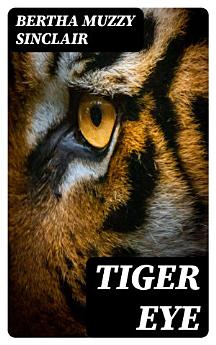Tiger Eye
2022. g. aug. · DigiCat
E-grāmata
138
Lappuses
family_home
Piemērota
info
reportAtsauksmes un vērtējumi nav pārbaudīti. Uzzināt vairāk
Par šo e-grāmatu
In "Tiger Eye," Bertha Muzzy Sinclair immerses readers in a rich tapestry of human emotion intertwined with the natural world. The novel intricately explores themes of love, survival, and the complexity of relationships within the wilderness setting of the American West. Sinclair's evocative prose and keen observations reflect the influence of naturalist writers of her time, as she offers a deep psychological portrayal of her characters, allowing them to navigate the harsh realities of their environment. Her vivid descriptions and symbolism abound, particularly in the titular "Tiger Eye," representing both a source of inner strength and a reminder of the primal instincts that can govern human behavior. Bertha Muzzy Sinclair, a prominent early 20th-century author, is celebrated for her insightful depictions of frontier life and women's experiences. Growing up in the rugged landscapes of the West, Sinclair's personal experiences and her commitment to exposing social injustices shaped her narrative style and thematic focus. Her unique perspective as a female writer in a predominantly male literary sphere set her apart, as she often highlighted the resilience and fortitude of women in challenging circumstances. "Tiger Eye" is a must-read for those captivated by richly woven narratives and multifaceted character studies. Sinclair's ability to blend adventure with profound introspection provides profound insights into the strains of human existence. Readers who appreciate literary explorations of identity and survival will find this work both engaging and enlightening.
Par autoru
Bertha Muzzy Sinclair, also known by her pseudonym B. M. Bower, was a prolific American author of western fiction. Among her most recognized works is the novel 'Tiger Eye,' a prime example of her stirring narratives set in the American West. Bertha Muzzy was born on November 15, 1871, in Otter Tail County, Minnesota. She became a pioneering woman in Western genre literature, a field dominated by men at the time. Adhering to the literary style that favored rugged landscapes and gritty characters, Sinclair's writing was notable for its vivid descriptions and compelling plotlines that often centered around life on the frontier, the essence of cowboy life, and the intricate dynamics that underpin rural communities. Sinclair's large body of work, which encompasses more than 60 novels, such as 'Chip of the Flying U' (1906) and 'The Gringos' (1913), helped establish her as a significant figure in early 20th-century Western literature. Her works were characterized by her intimate knowledge of ranch life, which added authenticity and depth to her storytelling. Sinclair's contributions to the literary canon remain appreciated by enthusiasts of Western lore and serve as a testament to her enduring legacy in American letters. She continued writing until her death on July 23, 1940, leaving behind a rich tapestry of stories that continue to captivate readers with their depictions of the old West.
Novērtējiet šo e-grāmatu
Izsakiet savu viedokli!
Informācija lasīšanai
Viedtālruņi un planšetdatori
Instalējiet lietotni Google Play grāmatas Android ierīcēm un iPad planšetdatoriem/iPhone tālruņiem. Lietotne tiks automātiski sinhronizēta ar jūsu kontu un ļaus lasīt saturu tiešsaistē vai bezsaistē neatkarīgi no jūsu atrašanās vietas.
Klēpjdatori un galddatori
Varat klausīties pakalpojumā Google Play iegādātās audiogrāmatas, izmantojot datora tīmekļa pārlūkprogrammu.
E-lasītāji un citas ierīces
Lai lasītu grāmatas tādās elektroniskās tintes ierīcēs kā Kobo e-lasītāji, nepieciešams lejupielādēt failu un pārsūtīt to uz savu ierīci. Izpildiet palīdzības centrā sniegtos detalizētos norādījumus, lai pārsūtītu failus uz atbalstītiem e-lasītājiem.








